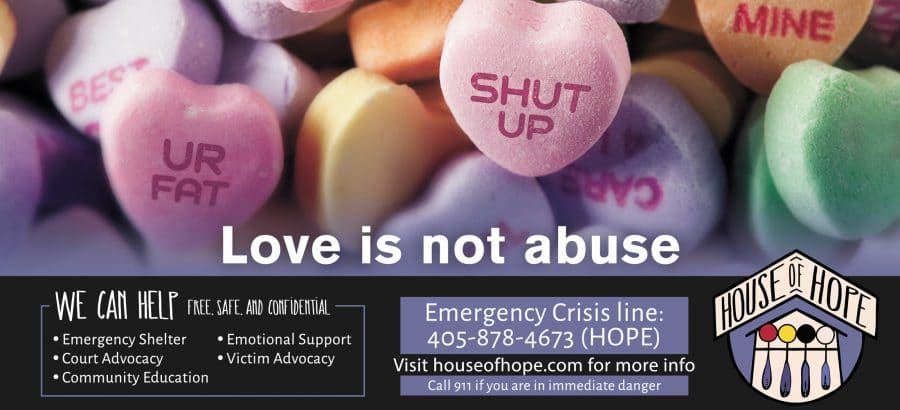By Darian Towner, CPN House of Hope Prevention Specialist
Dating for teens in 2019 is drastically different than what their parents’ and grandparents’ generations went through. Technology and society have slowly molded dating and the norms that accompany young love.
Those new to relationships may not know that possessiveness in relationships is not a positive or endearing trait for adults. Younger people may think that possessiveness is OK and that it is a sign of love.
This is a dangerous problem.
All too often, controlling actions include constant texting or messaging, providing social media or phone passwords to a partner, leaving one’s cell phone location “on” at all times, or checking a partner’s phone without their permission. These are not normal actions.
With dating today being more complex, many parents are forced to tackle issues their youth face without the ability to draw from their own specific experiences.
A caregiver might easily agree that having a conversation with their child on boundaries is important but might not understand how those are at play when it comes to technology and dating.
For example, it would be difficult for a caregiver to think of the question for their teen, “Do you think it is OK for your partner to determine who you can follow on Instagram?” if the they do not understand the role that social media often plays in teen relationships.
It is important for adolescents to determine where their boundaries are in a relationship in terms of what they are comfortable with physically, emotionally, sexually and digitally.
It’s time to talk. Some practical questions and conversation starters are available from breakthecycle.org. The organization’s focus is creating and sustaining healthy relationships for teens. They suggest some of the following questions for parents such as:
“Would you ever share your Instagram password with your partner? Why or why not?”
“Do any of your favorite TV or movie couples check each other’s phones or social media accounts without asking? How did that turn out for them?”
Additionally, it is time to be more aware of the lessons we may be inadvertently teaching. Telling our young girls that when boys are mean to them it’s because they like them and our boys that showing emotion (in and out of a relationship) is a sign of weakness are seemingly simple phrases that have the ability to warp their perceptions of a normal relationship and can be detrimental to their future.
Statistics from a study conducted by the National Council on Crime and Delinquency show us that one in three adolescents will experience abuse of some kind from a dating partner.
Allow that number to sink in — the reality of that number — and let it motivate you to stand up and speak out against teen dating violence.

As always, if you or someone you know is experiencing dating violence, sexual assault or stalking and would like more information, please give us a call on our crisis line at 405-878-4673, or visit us online at facebook.com/cpnhouseofhope.
